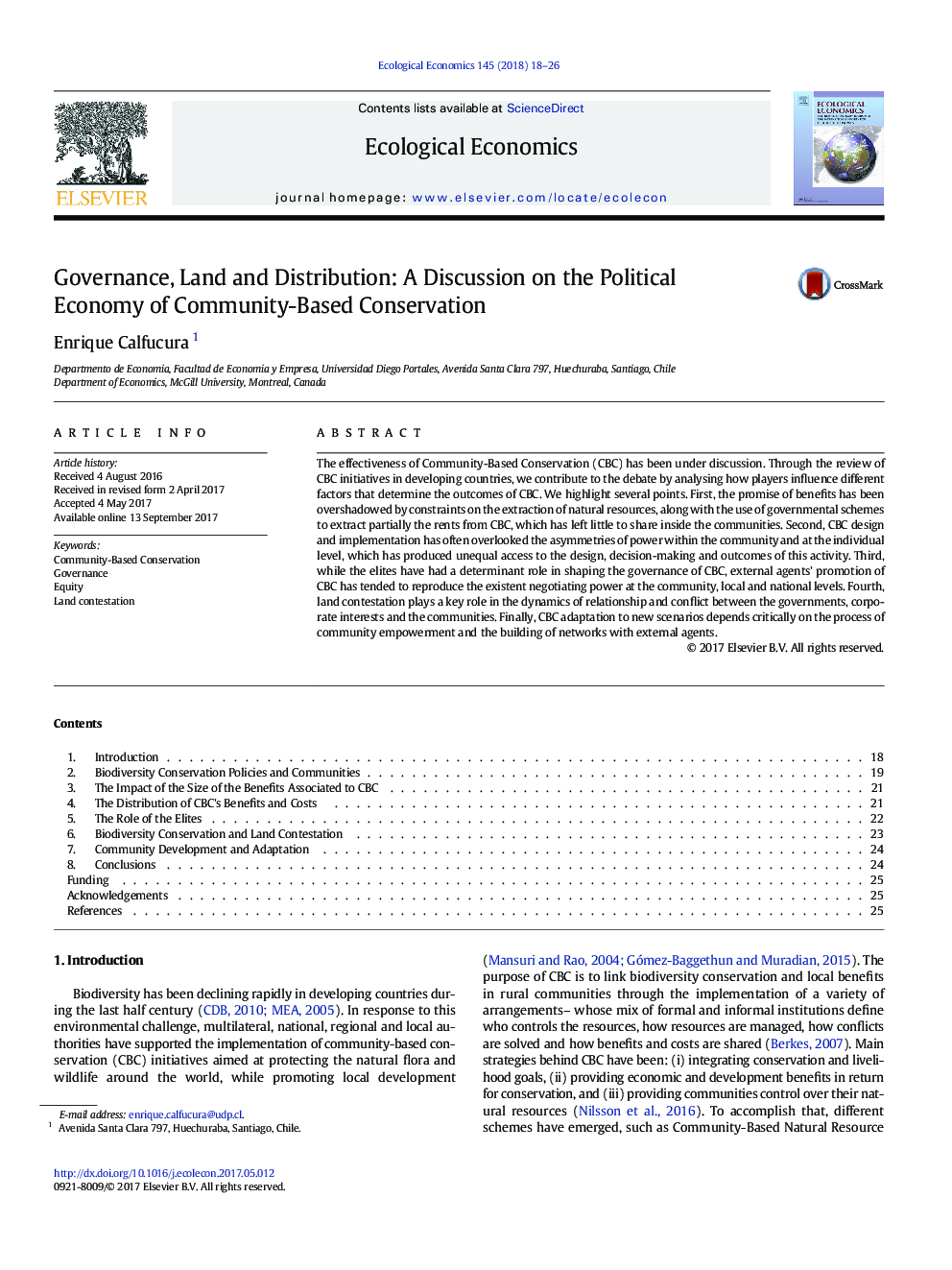| Article ID | Journal | Published Year | Pages | File Type |
|---|---|---|---|---|
| 5048589 | Ecological Economics | 2018 | 9 Pages |
The effectiveness of Community-Based Conservation (CBC) has been under discussion. Through the review of CBC initiatives in developing countries, we contribute to the debate by analysing how players influence different factors that determine the outcomes of CBC. We highlight several points. First, the promise of benefits has been overshadowed by constraints on the extraction of natural resources, along with the use of governmental schemes to extract partially the rents from CBC, which has left little to share inside the communities. Second, CBC design and implementation has often overlooked the asymmetries of power within the community and at the individual level, which has produced unequal access to the design, decision-making and outcomes of this activity. Third, while the elites have had a determinant role in shaping the governance of CBC, external agents' promotion of CBC has tended to reproduce the existent negotiating power at the community, local and national levels. Fourth, land contestation plays a key role in the dynamics of relationship and conflict between the governments, corporate interests and the communities. Finally, CBC adaptation to new scenarios depends critically on the process of community empowerment and the building of networks with external agents.
